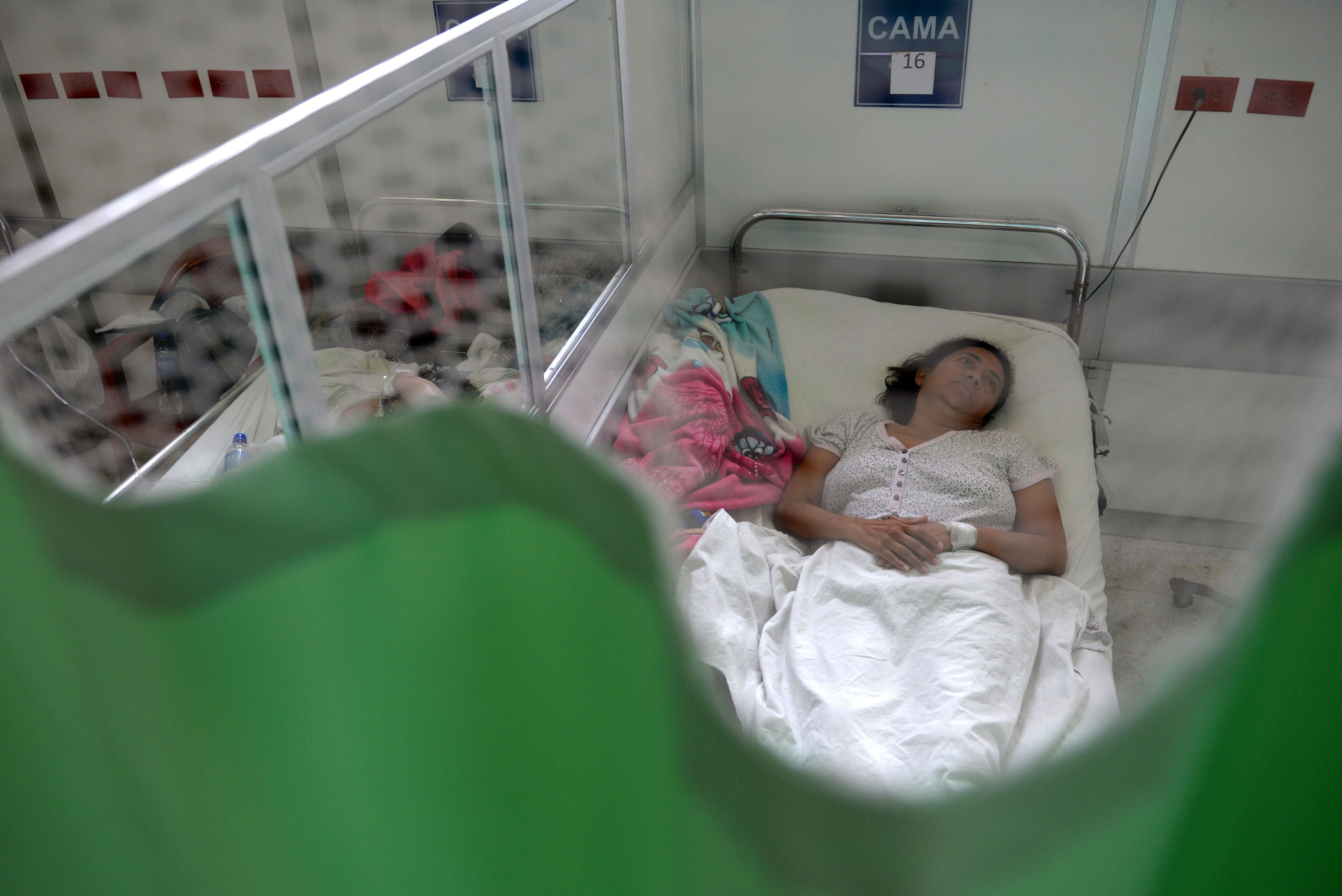The Independent's journalism is supported by our readers. When you purchase through links on our site, we may earn commission.
What is Guillain-Barre Syndrome? Everything we know about the rare autoimmune disorder
The Mayo Clinic defines Guillain-Barre Syndrome as ‘a rare disorder in which your body’s immune system attacks your nerves’

Your support helps us to tell the story
From reproductive rights to climate change to Big Tech, The Independent is on the ground when the story is developing. Whether it's investigating the financials of Elon Musk's pro-Trump PAC or producing our latest documentary, 'The A Word', which shines a light on the American women fighting for reproductive rights, we know how important it is to parse out the facts from the messaging.
At such a critical moment in US history, we need reporters on the ground. Your donation allows us to keep sending journalists to speak to both sides of the story.
The Independent is trusted by Americans across the entire political spectrum. And unlike many other quality news outlets, we choose not to lock Americans out of our reporting and analysis with paywalls. We believe quality journalism should be available to everyone, paid for by those who can afford it.
Your support makes all the difference.This week, adult film actress Jenna Jameson revealed that she’s being treated in a Hawaii hospital for Guillain-Barre Syndrome.
“The doctors suspect Guillain-Barre syndrome and have started my IVIG (intravenous immune globulin) treatment,” Ms Jameson wrote in an Instagram post. “I am in the hospital and will likely remain here until treatment is complete.”
This, of course, begged the question, what is Guillain-Barre Syndrome? The Mayo Clinic defines the illness as a “rare disorder in which your body’s immune system attacks your nerves.” There is no known cure for it, but there are treatments to mitigate its symptoms. Here’s a look at some of the most frequently asked questions about the condition.

What are the symptoms of Guillain-Barre Syndrome?
The symptoms of GBS can develop rapidly. As the immune system attacks peripheral nerves, victims typically experience a loss of feeling that gradually spreads throughout the body.
“Weakness and tingling in your extremities are usually the first symptoms,” the Mayo Clinic says. “These sensations can quickly spread, eventually paralyzing your whole body. In its most severe form Guillain-Barre syndrome is a medical emergency. Most people with the condition must be hospitalized to receive treatment.”
In severe cases, muscles affecting speech, swallowing, and breathing may be paralysed. In about 20 to 30 per cent of cases, GBS can lead to respiratory failure, and between 4 and 7 per cent of patients die.
On the other hand, most people with GBS do recover, the Mayo Clinic says, and 60- to 80 per cent are able to walk again after six months.
What causes Guillain-Barre Syndrome?
The causes of GBS are mysterious. Scientists don’t know why people develop the syndrome, but it often begins not long after an infection of some kind.
“The exact cause of Guillain-Barre syndrome isn’t known,” the Mayo Clinic says. “The disorder usually appears days or weeks after a respiratory or digestive tract infection.”
One theory is that GBS is triggered by the immune system’s overreaction to a bacterial or viral infection.
How common is it?
Thankfully, Guillain-Barre syndrome is rare. In Europe and North America, it affects only one to two members of the general public out of 100,000 each year.
Is GBS caused by the Johnson & Johnson vaccine?
In very rare cases, recipients of the Johnson & Johnson (also called “Janssen”) vaccine for Covid-19 have developed Guillain-Barre Syndrome, but experts say there is not enough data to indicate that one causes the other.
Out of 12.8 million people who have received the shot, only about 100 are suspected to have developed GBS afterward. Nevertheless, the US Food and Drug Administration issued a warning to Johnson & Johnson recipients regarding the syndrome – but emphasised that the risk was extremely small, especially compared to the dangers of getting Covid.
“Although the available evidence suggests an association between the Janssen vaccine and increased risk of GBS, it is insufficient to establish a causal relationship,” the FDA said in a statement. “Importantly, the FDA has evaluated the available information for the Janssen COVID-19 Vaccine and continues to find the known and potential benefits clearly outweigh the known and potential risks.”
In the case of Ms Jameson, the actress says her GBS was definitely not caused by a vaccine.
“PS I did NOT get the jab or any jab,” Ms Jameson wrote in her Instagram post. “This is NOT a reaction to the jab. Thank you for your concern.”
Join our commenting forum
Join thought-provoking conversations, follow other Independent readers and see their replies
Comments